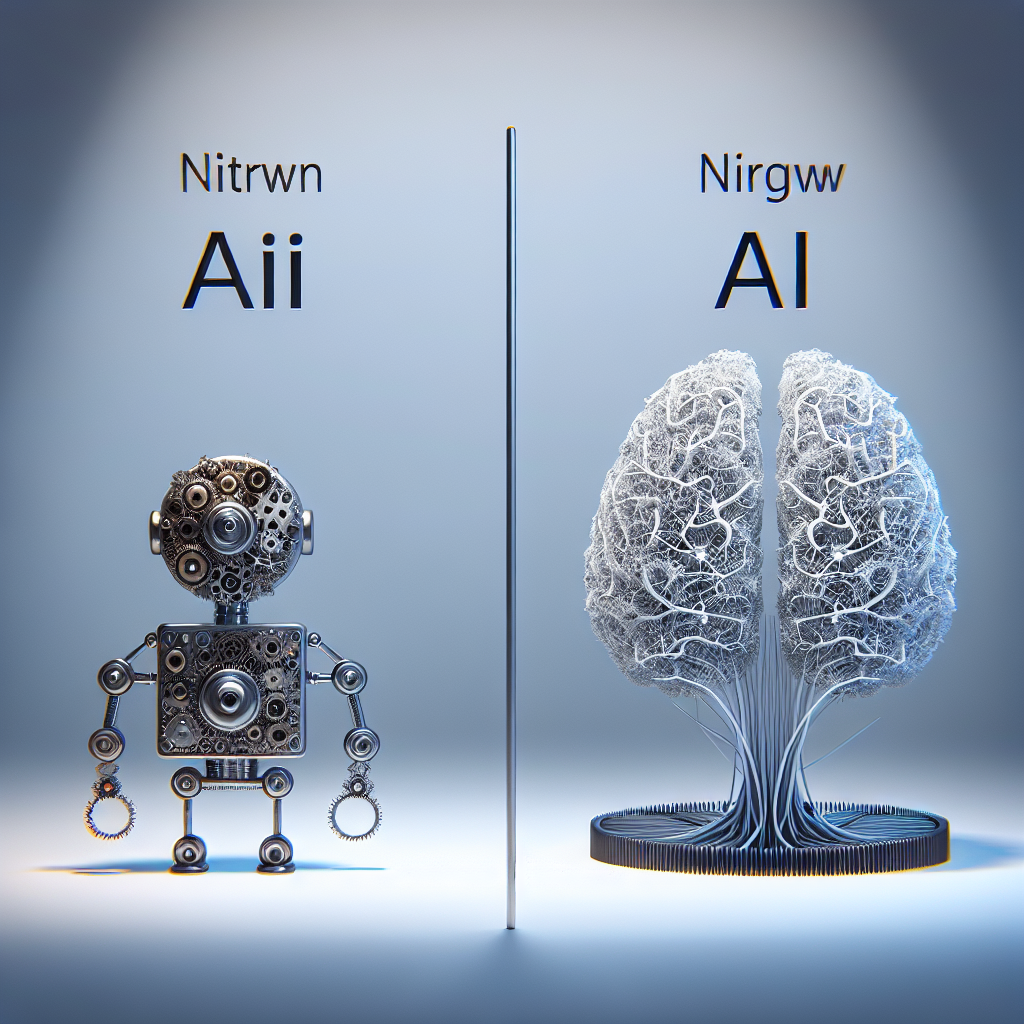Artificial Intelligence (AI) is a rapidly evolving field that has the potential to revolutionize various industries and aspects of our daily lives. Within AI, there are two main categories: Narrow AI and Artificial General Intelligence (AGI). While both types of AI can perform specific tasks, they differ significantly in their capabilities and implications. In this article, we will explore the differences between AGI and Narrow AI, as well as their potential implications for society.
Narrow AI, also known as Weak AI, refers to AI systems that are designed to perform specific tasks or functions within a limited domain. These systems are highly specialized and excel at performing one particular task, such as image recognition, natural language processing, or playing chess. Narrow AI is the most common form of AI that we encounter in our daily lives, from virtual assistants like Siri and Alexa to recommendation algorithms used by streaming services and online retailers.
One of the key characteristics of Narrow AI is its lack of general intelligence. These systems are not capable of learning or adapting to new tasks and environments beyond their programmed capabilities. For example, a chatbot designed to answer customer service inquiries may be able to respond to a wide range of questions within its designated domain, but it would not be able to perform tasks outside of that domain without significant reprogramming.
On the other hand, AGI, also known as Strong AI, refers to AI systems that possess the ability to understand, learn, and apply knowledge across a wide range of tasks and domains. AGI aims to replicate human-like intelligence, including reasoning, problem-solving, and creativity. While Narrow AI is focused on solving specific problems efficiently, AGI is designed to have a more general understanding of the world and the ability to adapt to new situations.
The development of AGI is still in its early stages, and researchers are actively working to overcome the technical challenges associated with creating a truly intelligent system. While Narrow AI has made significant advances in recent years, AGI remains a long-term goal that has the potential to fundamentally transform society in ways that are difficult to predict.
One of the key implications of AGI is its potential impact on the job market. As AGI systems become more advanced, there is a possibility that they could replace human workers in a wide range of industries, leading to widespread unemployment and economic disruption. However, AGI also has the potential to create new job opportunities and drive innovation in ways that could benefit society as a whole.
Another important consideration is the ethical implications of AGI. As AI systems become more intelligent, there are concerns about issues such as privacy, bias, and autonomy. AGI systems could potentially make decisions that have far-reaching consequences for society, raising questions about accountability and transparency. It will be crucial for researchers and policymakers to address these ethical concerns as AGI technology continues to advance.
In conclusion, AGI and Narrow AI represent two distinct approaches to artificial intelligence with different capabilities and implications. While Narrow AI is currently more prevalent and has made significant progress in specialized tasks, AGI has the potential to revolutionize society by creating systems that possess human-like intelligence. As researchers continue to develop AI technology, it will be important to consider the ethical, social, and economic implications of both Narrow AI and AGI to ensure that these systems are used responsibly and ethically.
FAQs:
Q: What are some examples of Narrow AI?
A: Examples of Narrow AI include voice assistants like Siri and Alexa, recommendation algorithms used by streaming services and online retailers, and image recognition software used in security systems.
Q: How is AGI different from Narrow AI?
A: AGI aims to replicate human-like intelligence and possess the ability to understand, learn, and apply knowledge across a wide range of tasks and domains. Narrow AI, on the other hand, is highly specialized and excels at performing specific tasks within a limited domain.
Q: What are some potential implications of AGI for society?
A: Some potential implications of AGI for society include impacts on the job market, ethical concerns related to privacy and bias, and the potential for AGI systems to make decisions with far-reaching consequences.
Q: What are some challenges associated with developing AGI?
A: Some challenges associated with developing AGI include overcoming technical limitations, addressing ethical concerns, and ensuring that AGI systems are used responsibly and ethically.

